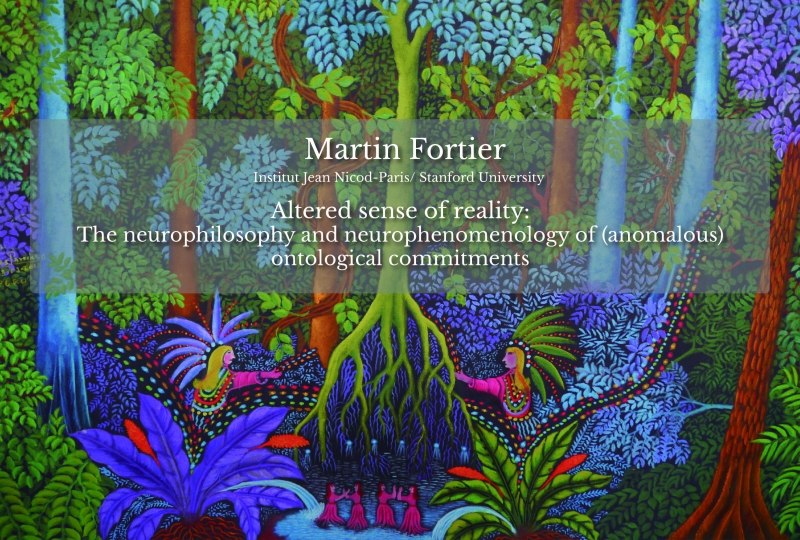
Inicio y fin de evento: Del 26 de agosto al 26 de agosto
Dirigido a: Comunidad Pucp y público externo
Lugar: Sala de Conferencias 1 de Estudios Generales Letras
Organizado por: Estudios Generales Letras
Sobre la Conferencia:
In the recent years, philosophers, psychologists, neuroscientists and anthropologists have been increasingly interested in exploring the sense (or feeling) of reality (or presence). Unlike judgments of reality (JR), which refer to high-level attributions of reality, the sense of reality (SR) strictly refers to the low-level processes through which things are (non-reflectively) recognized as present and/or real. For example, even if I am a metaphysical nihilist judging that nothing exists, it is very likely that while facing a snake I will still experience the snake as real. JR and SR should thus clearly be decoupled. Unlike classical philosophers (such as Quine) who have been mainly concerned with the study of high-level ontological commitments, researchers investigating the SR are almost exclusively focusing on the study of low-level ontological commitments that we make in our daily existence.
Several authors have proposed specific theories aiming to define what the SR consists in (for example: A. Billon, J. Dokic & J.-R. Martin, Ch. Frith, Ph. Gerrans, M. Matthen, A. Noë,
M. Ratcliffe, A. Seth, and M. Slater). I will review some of these theories but then argue that none of them is entirely satisfactory. Indeed, all these theories endorse a common but highly questionable assumption – to wit that the concept of SR pinpoints a single clear-cut natural kind. Drawing upon various cases characteristically involving some altered SR (virtual reality device, derealization syndrome, prodromal psychosis, dreaming, serotoninergic hallucinogens, anti-cholinergic hallucinogens, etc.), I will claim that the very notion of SR covers in fact three distinct conceptual kinds as well as six distinct phenomenal and neurobiological kinds. Some philosophical consequences (especially in the field of philosophy of perception) of the heterogeneous account of the SR I am contending will finally be adumbrated.
Sobre Martin Fortier:
Martin Fortier holds a master’s degree in philosophy as well as a master’s degree in anthropology.
He is currently a doctoral student at Institut Jean Nicod (a lab hosted by the ENS Department of Cognitive Studies) and at the Department of Philosophy and Social Sciences of EHESS. He is also a visiting student researcher at the Department of Anthropology of Stanford University. His research broadly explores how culture influences cognition. In order to investigate this question, Martin resort to tools from psychology, neuroscience, philosophy and anthropology.
His current PhD research project consists in exploring the interplay between neurobiological processes and culture in the formation of altered states of consciousness (and especially those induced by hallucinogenic substances). The model he is developing is largely influenced by the predictive coding and the free energy paradigms put forward by researchers such as Karl Friston, Chris Frith and Alexandre Pouget. Part of his PhD research consists in examining the philosophical consequences of this Bayesian model of altered consciousness on issues classically discussed by philosophers of mind and perception.
In parallel, Martin is still further exploring the topic of Amazonian animism which was at the core of his anthropology master thesis. This second project aims at understanding the main cognitive mechanisms of animism. Martin is currently conducting several experiments in the Peruvian Amazon – and is hoping to conduct many other in the near future; these experiments look at the way indigenous people conceive of the person, of ethnic identity and of biological identity and at how these conceptions are related to animism. Much of this program is influenced by recent Bayesian models of cognition developed by Joshua Tenenbaum, Thomas Griffiths, Fei Xu and colleagues.